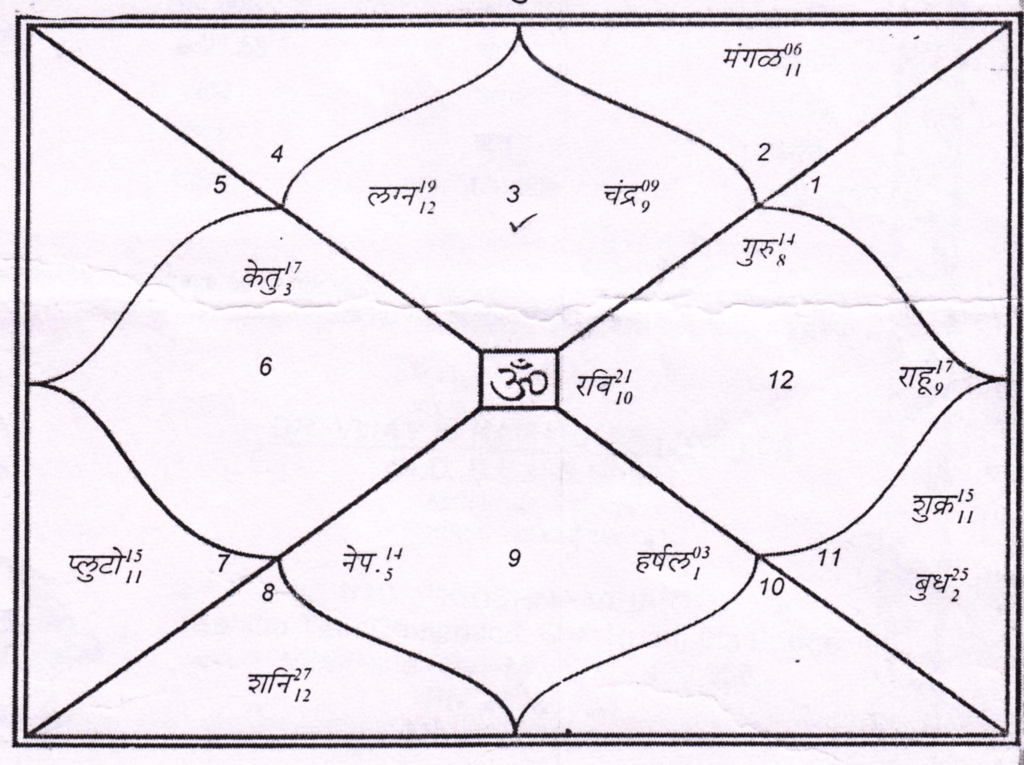The horoscope, or Kundali, is an important part of Indian astrology. It depicts the locations of celestial bodies at the moment of a person’s birth. The Kundali is used to forecast a person’s life, personality, and future occurrences. In this essay, we will go through how to check your Kundali on your own.

Before we begin, it is critical to grasp the fundamentals of Kundali. A kundali is a chart that depicts the locations of celestial bodies such as planets, stars, and constellations at the moment of birth. A Kundali has 12 houses, and each house represents a different part of a person’s life. Celestial body locations in each house may have a huge influence on a person’s life.
To verify your Kundali on your own, you must have exact information about the time and location of your birth. This information can be obtained from your birth certificate or by questioning your parents. Once you have this information, you may generate your Kundali using an online Kundali calculator or program. Many websites and applications provide free Kundali-generating services. The following are some actions you may take to create your Kundali:
Step 1: Find a reliable Kundali generator
There are several Kundali generators accessible on the internet, however, not all of them are trustworthy. Look for a generator that employs precise algorithms and considers the most significant parameters, such as the date, time, and location of birth. Astrotalk, GaneshaSpeaks, and AstroSage are three famous Kundali generators.
Step 2: Enter your birth details
Once you’ve discovered a trustworthy Kundali generator, enter your birth information, including your date of birth, time of birth, and location of birth. Check that the information you input is correct.
Step 3: Generate your Kundali
The Kundali generator will produce your Kundali chart when you enter your birth data. The chart will show the locations of celestial bodies in Kundali’s 12 houses.
Step 4: Interpret your Kundali
You may begin interpreting your Kundali chart once you have it. This is where things may become complicated, as deciphering a Kundali necessitates a thorough grasp of astrology. There are, however, certain fundamental aspects you may look for to gain a sense of what your Kundali says about you. Here are a few things to watch for:
The ascendant sign: The ascendant sign, or the sign that was rising on the eastern horizon when you were born, indicates your general attitude and view on life. It may help you understand your own strengths and shortcomings, as well as the type of person you are.
Planetary placements: The planets’ positions in your Kundali can have a tremendous influence on your life. If you have a strong Saturn in your Kundali, for example, it may signal that you will have trials and hurdles in your life. Similarly, a powerful Jupiter may signal that you will have excellent luck and wealth.
Houses: Each Kundali house reflects a different part of your life. The first house, for example, reflects your personality and physical appearance, the second house, your money and belongings, and so on. Look for planets in each house to see how that element of your life will be affected.
It is crucial to remember that deciphering a Kundali is a difficult procedure that needs a thorough grasp of astrology. It is suggested that you see a professional astrologer if you are serious about knowing more about your Kundali.

The Kundali chart is divided into 12 houses, each representing a different aspect of a person’s life. Here is a brief overview of what each house represents:
1st House: This house represents the self, including one’s personality, physical appearance, and how others perceive them.
2nd House: This house represents wealth, possessions, and material possessions.
3rd House: This house represents communication, siblings, and short journeys.
4th House: This house represents home, family, and the mother.
5th House: This house represents creativity, children, and romantic relationships.
6th House: This house represents health, daily routines, and service.
7th House: This house represents partnerships, marriage, and business partnerships.
8th House: This house represents transformations, inheritance, and mysteries.
9th House: This house represents spirituality, philosophy, and long-distance travel.
10th House: This house represents career, reputation, and social status.
11th House: This house represents friendships, groups, and social connections.
12th House: This house represents secrets, hidden enemies, and the subconscious.
Interpreting the Kundali Chart:
To analyse the Kundali chart, begin with the ascendant sign, which was rising on the eastern horizon at the moment of your birth. The ascendant sign in the sample chart above is Scorpio. This suggests that the individual has a deep and passionate personality and may be interested in themes such as psychology, spirituality, or mysticism.
Examine the planets’ placements in each house next. Jupiter is in the second house in the sample chart above, indicating that the person may have excellent luck and fortune with riches and things. Venus is in the seventh house, representing a peaceful and loving connection or marriage.
It is critical to understand that interpreting a Kundali chart is not a one-size-fits-all method. Each individual’s Kundali is unique, and the interpretation is based on the placements of the celestial bodies at the moment of birth.
Conclusion:
Checking your Kundali on your own may be a fun and educational experience. You may have a deeper insight of your personality, strengths, weaknesses, and life events by utilising a dependable Kundali generator and evaluating the chart with the assistance of table data and visuals. However, it is vital to remember that deciphering a Kundali is a difficult procedure that necessitates a thorough grasp of astrology. It is suggested that you see a professional astrologer if you are serious about knowing more about your Kundali.

